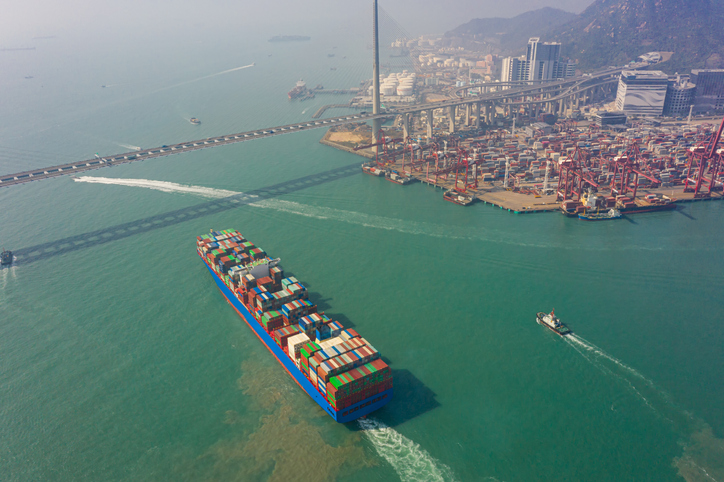October 13, 2020: In his speech before the 75th Session of the United Nations General Assembly on September 23 (held by videoconference due to the global coronavirus pandemic) the President of the Republic of Uzbekistan H.E. Mr. Shavkat Mirziyoyev sounded an optimistic note on Uzbekistan’s burgeoning economic and trade developments with its neighbor to the south, Afghanistan. One of the most striking manifestations of the renewed external policy of Uzbekistan after the election of President Mirziyoyev in 2016 was a fundamental reformatting of relations with the bordering countries, including Afghanistan. Indeed, while speaking of Uzbekistan’s ongoing process of democratic transformations and economic modernization, Mirziyoyev remarked that “over the past four years, Uzbekistan’s bilateral trade with neighboring states has grown almost five-fold.” The leadership of Uzbekistan has implemented a new approach by amplifying the economic vector, social development of Afghanistan and developing transport corridors. In a clear demonstration of this, the President stated that “we have started the implementation of major infrastructure projects such as Surkan-Puli Khumri power line and construction of a railway from Mazar-i-Sharif to the sea ports of the Indian Ocean.”
In addition, Mirziyoyev proposed that a Regional Center for the Development of Transport and Communications be established under the auspices of the United Nations to “ensure deep integration of our region into the global economic, transport and transit corridors.” Enter Afghanistan—a country that was there all along but for which the prospects for economic progress are looking brighter than ever. It is undeniable that Afghanistan and Central Asia have always influenced each other’s internal development: “We see Afghanistan as an integral part of Central Asia,” Mirziyoyev said. Although there are still many factors that can maintain internal tension and intra-Afghan confrontation, today there is also cause to look with a certain optimism at the situation in Afghanistan, as all look forward to a more integrated marketplace that will in time be conducive to the development of economic opportunities and blossoming of robust trade ties between Kabul and Tashkent.
Connectivity is key
That Uzbekistan’s supportive role in a renascent Afghanistan is a substantial one should come as no surprise given the two countries share a 144-kilometer border and broader historical links going back millennia and including the storied days of the Silk Road. Today, railroad projects have the power to not only promote transit connectivity but to encourage trade as well, with huge potential for all stakeholders concerned. The Mazar-i-Sharif railway will help Afghanistan open economic links to Chabahar Port in Iran—a gateway to Central Asia—but also to important Indian Ocean important seaports on the Pakistani coast such as Karachi, and along the Indian littoral as well. Uzbekistan is well-positioned to play a major role not only as a transit country for goods from China but also as an exporter of domestic products to Afghanistan, which will eventually function as the “land bridge” it has long been but with far greater efficiency. Shoring up Afghan infrastructure will over time attract the kind of thru-traffic to create a new engine of economic growth in the region. At the same time, Uzbekistan will through its active participation in these projects undoubtedly continue to raise its profile as a force for positive change and sustainable development on the international stage.
Investing in energy
With its well-established and sizeable power generation facilities and abundant supply of natural gas, Uzbekistan has become the largest electricity producer in Central Asia. That makes the country a natural partner for investment in Afghanistan’s energy future. The power transmission line will extend some 260 kilometers from Surkhan southward to Puli Khumri— which sits 230 km north of Kabul—injecting more than a thousand megawatts of electricity into Afghanistan’s power grid. Over the course of a year that amounts to up to six billion kilowatts, effectively boosting the electricity supply from Uzbekistan to Afghanistan by 70 percent. The provision of this inexpensive electricity is truly a game changer with considerable commercial and cultural promise. According to the Afghan National Electricity Company, Da Afghanistan Breshna Sherkat or DABS, once completed the Surkan-Puli Khumri power project “will bring light to people in ten provinces of the country.”
President Mirziyoyev’s evocation of the Surkan-Puli Khumri project at the UN General Assembly is testament to Uzbekistan’s commitment to work with the Afghans to involve Afghanistan in the overall roadmap for greater regional economic integration. Moreover, a renewal of the commercial and historical links between civilizations that stretch back to the times of Alexander the Great will help secure the region’s status as an economic and cultural crossroads of both world history and beacon for a better future. In fact, Uzbekistan will host the Central Asia at the Crossroads of World Civilizations forum next year in the ancient city of Khiva, in cooperation with UNESCO. President Mirziyoyev also used the occasion of his UN General Assembly speech to propose the formation of a new United Nations commission on Afghanistan so that through close cooperation “we can realize all the dreams and aspirations of the Afghan people.” And as joint projects come to fruition the dividends of strategic collaboration will also be shared between Uzbekistan and the people of Afghanistan. As the Uzbek proverb goes, “If your neighbour is prosperous, you are prosperous.”
Source: euronews






